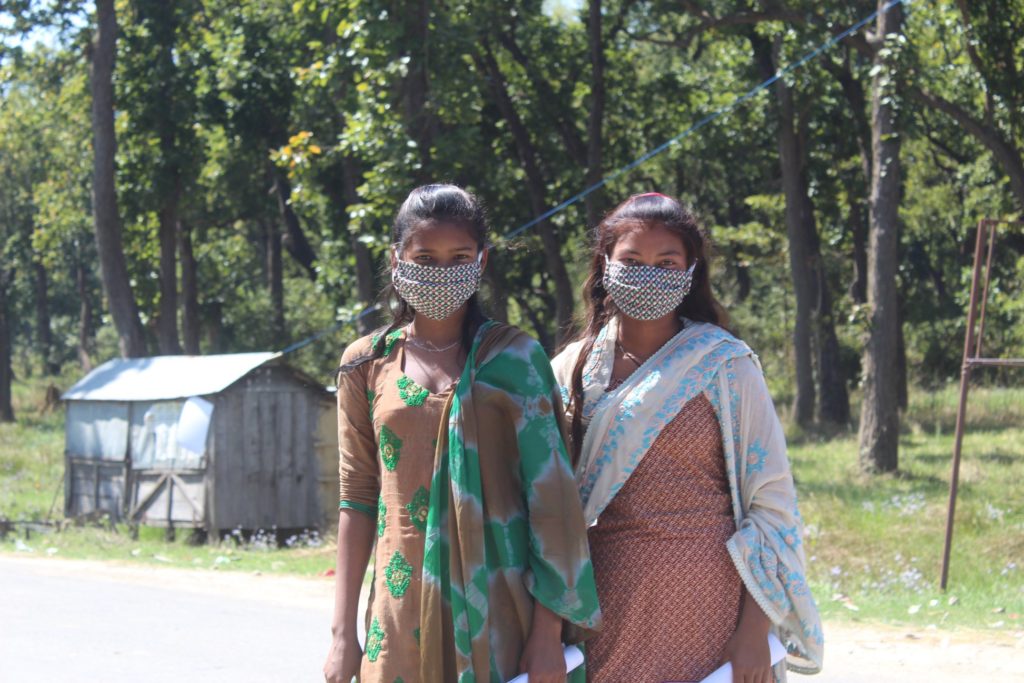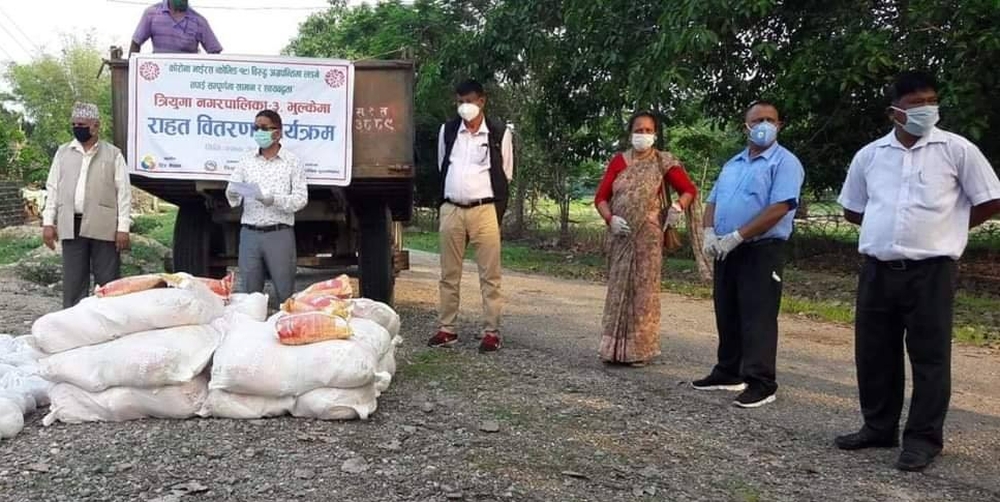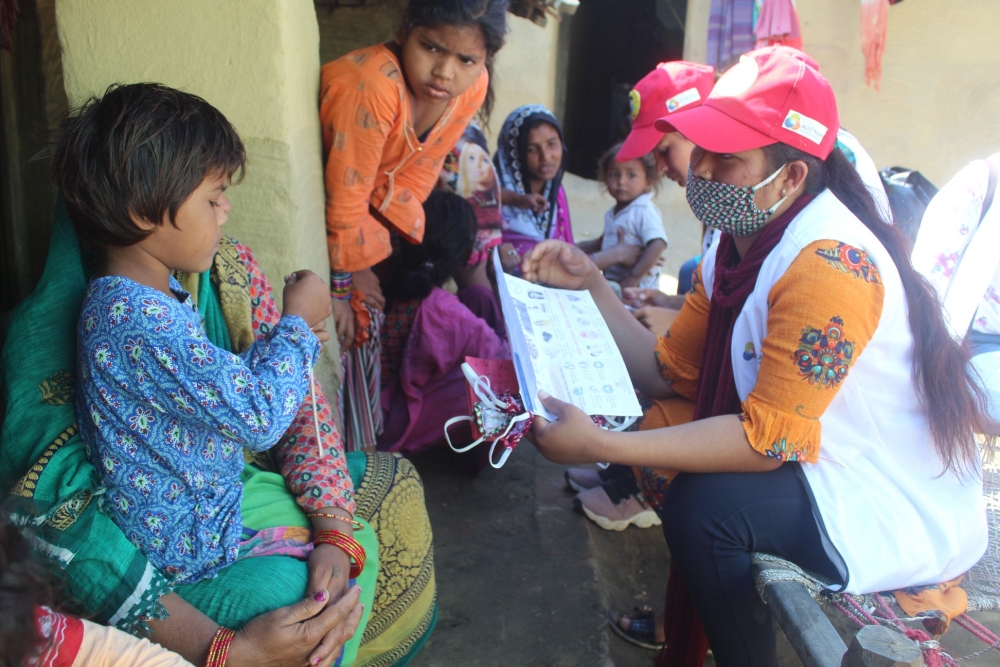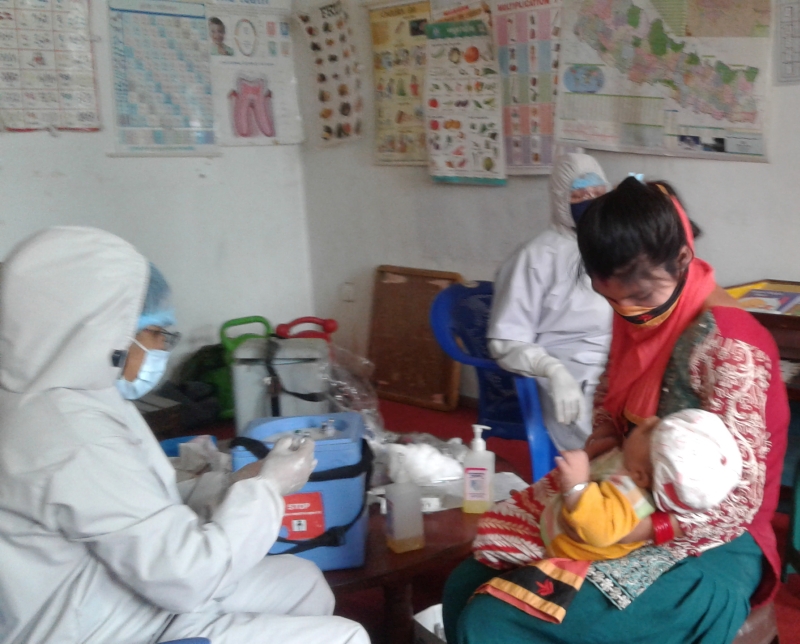The flexibility and deft responsiveness to local context and needs that READ Centers in Bhutan, India, and Nepal have demonstrated since the outbreak of the COVID-19 epidemic is a strong sign of their resilience and effective local leadership–elements that are crucial for our teams’ longevity and sustained impact in their regions.
Nationwide, India and Nepal have begun relaxing their economic restrictions while maintaining suggestions to stay at home, while Bhutan never formally shut down. The number of cases is growing in all three countries as they wrestle with the economic impact of the virus, the shutdown, the global recession, and a loss of tourism income.

In the face of this uncertainty and the constantly shifting new normal, the READ country teams and our network of READ Centers continue to respond quickly to emerging needs and challenges while fulfilling their core mission: supporting and empowering the most vulnerable among rural populations–the poor, women, and children–by providing essential skills training and promoting rural literacy and prosperity.
During this period, we responded immediately in three ways:
- Sharing accurate information and counteracting rumors using flyers and even making home visits at the doorsteps of villagers;
- Providing basic financial and materials support (food, PPE, and basic necessities) to those who lost their income;
- Closing Centers, and putting restrictions on visitor hours combined with new sanitation practices in most Centers.

Now, as the impact of the virus grows and national lock downs begin again, our READ country teams and Centers continue to identify ongoing urgent priorities:
- Lack of food and financial resources, such as on the part of orphanages and people in rural communities
- A desire to continue education and training, especially for children
- Insufficient supply of PPE and basic medication, both among communities and healthcare facilities
Trusting and knowing that our teams could help advocate and support these needs, they reached out to partners about redirecting funding, and in Nepal, the presidents of 36 READ Centers came together to launch a joint relief fund to help provide support. The READ India team collaborated with women in the stitching and sewing program to have them focus their efforts on creating face masks and other PPE supplies.
They also used their role in communities to help organize local material resources and serve as conduits to those who needed them most. As each team continues to adapt existing programming to fit a distance learning format, we hope to reach people who have been cut-off from education during this period, whether it is to learn a new technical skill or to learn how to read to restart education and learning in regions that need it most.

Now that our teams have a clearer picture of the new normal, they are taking another step in figuring out what individual communities need by going out and asking them. This includes reaching out to program participants, ad hoc conversations with community members and leaders, and other avenues for more formal listening and active observations. In Nepal, for example, they undertook a direct needs assessment surveying over 22,000 people. They used this information to identify immediate needs like people requiring material assistance or those who were showing COVID-like symptoms, as well as to direct their planning.
- Showing true creativity, resilience and agency, please check out a comprehensive list of actions our Centers and teams have taken since the beginning of May. Identifying migrant workers returning from abroad to help them quarantine properly (Nepal)
- Providing temporary support to migrant workers stranded by the shutdown as they walk home (Nepal, India)
- Developing better distance learning content and modalities to fit each Center’s and community’s needs, such as mobile libraries to bring books to children in rural communities, mobile-friendly units, and providing education via radio (Bhutan, India, Nepal)
- Partnering with medical care providers to facilitate regular prenatal care and immunizations, two things many people were ignoring due to worries about medical centers being safe
- Partnering with the government to create a COVID-19 hotline to answer questions

Moving Forward
As READ Global, READ country offices, and READ Centers adjust to our new context, Centers are preparing for reopening in the summer, identifying creative ways to continue to engage the community in smaller, socially-distanced groups.
READ Centers will place a renewed emphasis tackling gender-based violence and providing access to mental health resources. Our new programming will also emphasize:
- Health and hygiene
- Adult, digital, and financial literacy, and literacy education for youth
- Economic empowerment and agricultural support
- In response to this new landscape, our offices need your help to fund a number of special initiatives.
- Bringing books, information, and learning activities to rural areas and those further from Centers, such as mobile libraries and outreach activities
- Dedicated hotlines, managed in partnership with the government, to answer COVID 19 and related queries
- Expanding remote training and education offerings offerings.
- Support us in our goal to raise funds to help our communities through this crisis, jumpstart livelihoods and extend educational opportunities for affected families, now AND for the longer-term rebuilding efforts.
To learn more, check out our monthly updates or reach out to impact@readglobal.org.



